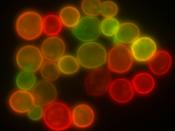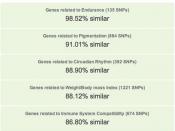SINGLE-CELL PROTEIN (SCP)
Single-Cell Protein - The term single- cell protein (SCP) is used to describe protein derived from microbial cells (such as yeast, other fungi, algae and bacteria),. The whole organism is harvested and consumed, rather than using the products of their fermentation's or other processing. While SCP production may have potential for feeding the ever-increasing world population, in practice only a few schemes have proved to be commercially successful . Photosynthetic organisms include Spirulina maxima which is grown in open ponds or basins.
This type of biomass is based on protein extracts derived from microorganisms grown in large quantities for either human or animal consumption. The vessels used for cultivating methylotrophic bacteria for SCP production are large air-lift fermenters with a capacity exceeding 100000 liers. The main market for SCP is as protein supplement due to its high protein content containing many essential aminoacids. Its main disadvantage lies in the presence of nucleic acids which in human consumption will give rise to accumulation of uric acid leading to gout.
A series of different yeast strains suitable for human food or animal feed have been screened and identified as potential sources of single-cell protein. A mixed culture of these strains will be able to utilize all of the substrates existing in dilute food wastes, reducing at the same time the level of pollution of the wastes, as measured by their biological oxygen demand (BOD).
One of the main advantages of SCP compared to other types of protein is the small doubling time of cells (td) as shown in Table 1.
Table 1
Mass doubling time (S)
Due to this property, the productivity of protein production form micro-organisms is greater than that of traditional proteins (Table 2).
Table 2
Efficiency of protein production of several protein sources...


